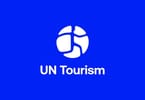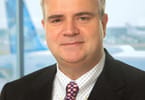According to industry experts and a major online hotel booking company Russia is now the world’s second fastest growing outbound travel market in terms of spend, up 32 percent in 2012 and more than doubling since 2005. The RITM examines how hoteliers are reacting to this rapid growth, which last year saw Russians spend $43 billion on travel abroad, making Russia the fifth biggest outbound travel market globally.
In 2012, 35.7 million tourists from Russia took a foreign trip, up from just 7.7 million in 2006. The country has become a top performing growth market for many destinations and international outbound travel is forecast to grow by 7.5 percent per year on average to 2017. However, with a population of over 140 million, there is still a huge untapped market for foreign travel that will create demand for different types of holiday and new destinations that are bound to make an impact on the pattern of world tourism.
Johan Svanstrom, president of the Hotels.com brand said: “The meteoric rise of Russia’s outbound travel market is providing a welcome boost to hoteliers worldwide, with Russians among the highest spenders on hotel rooms globally. The rising size and spending power of middle class travelers is a key driver behind this growth. Standing 104 million strong today, the group is set to account for 86 percent of the country’s population by 2020, with a combined spending power of $1.3 trillion.
Many hoteliers also supported this fact as 43 percent said that Russians are now spending more money on their travels. Moreover, they are becoming more confident and independent, with improved foreign language skills. More than half (53 percent) already book their accommodation online with only 32 percent opting for a traditional travel agent.
With 92 percent of the hoteliers questioned expecting the volume of Russian visitors to increase over the next three years, many are making changes to deliver a warmer welcome. Almost a third (32 percent) of hoteliers have already started to offer Russian TV channels while more than a fifth (23 percent) have hired Russian-speaking staff, with a further 12 percent planning to do so.
To ensure that Russian guests have a more relaxing stay, 15 percent of hoteliers plan to offer translated welcome materials, in addition to the 20 percent that already do so, and a further 15 percent plan to start providing translated tourism guides. Eleven percent plan to start serving Russian food.
[1]. World Tourism Organization, April 2013: http://dtxtq4w60xqpw.cloudfront.net/sites/all/files/pdf/tsen_0.pdf
[2]. European Travel Commission: European Tourism 2013: Trends & Prospects
[3]. Nielsen, March 2013: http://www.nielsen.com/us/en/newswire/2013/a-rising-middle-class-will-fuel-growth-in-russia.html
WHAT TO TAKE AWAY FROM THIS ARTICLE:
- To ensure that Russian guests have a more relaxing stay, 15 percent of hoteliers plan to offer translated welcome materials, in addition to the 20 percent that already do so, and a further 15 percent plan to start providing translated tourism guides.
- However, with a population of over 140 million, there is still a huge untapped market for foreign travel that will create demand for different types of holiday and new destinations that are bound to make an impact on the pattern of world tourism.
- Almost a third (32 percent) of hoteliers have already started to offer Russian TV channels while more than a fifth (23 percent) have hired Russian-speaking staff, with a further 12 percent planning to do so.






















